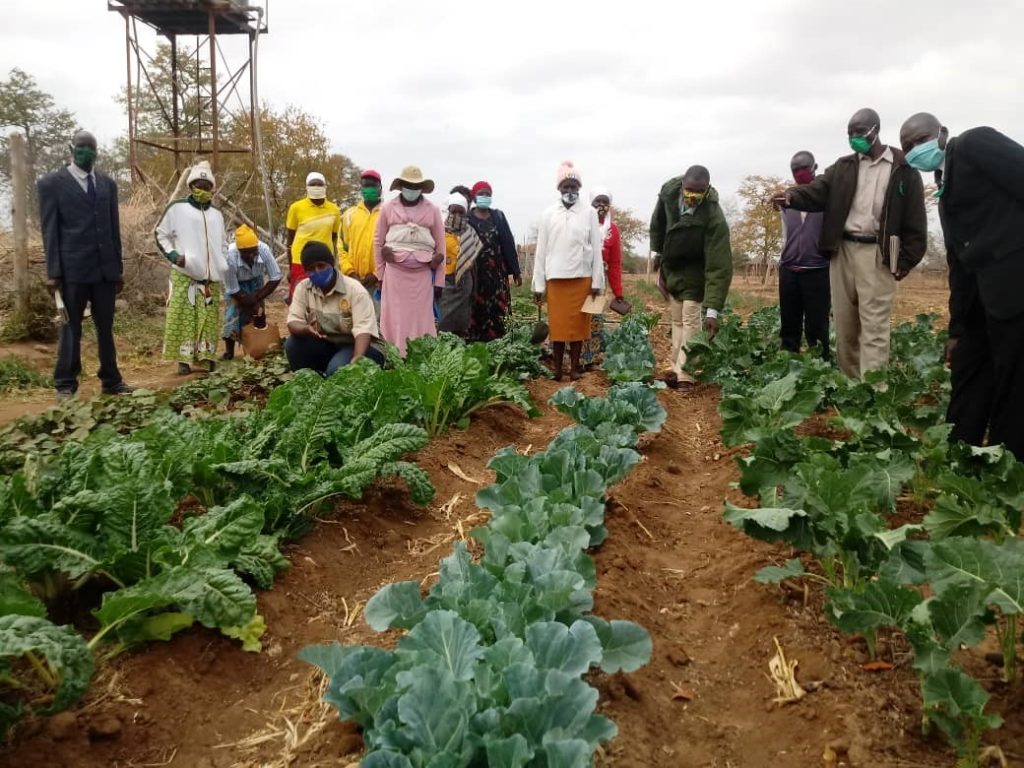
Training Continues in Smaller Groups
When news of the COVID-19 pandemic was released in Zimbabwe, farmers and local partner staff initially panicked. Until more information was gathered about how the virus spread, the program suspended activities for about a month.
But, just as elsewhere, people had to “keep on keepin’ on”, despite fears of getting sick. They faced multiple threats to their food security, some new, some perennial. In 2020, local monetary policies affected markets; fall army worms and striga weeds continued to wreak havoc; and the increasing unpredictability of rains made it harder to know when to plant.
Once local partner SCORE had more information on how to prevent the spread of the virus, staff began working on innovative ways to visit and provide PPE and COVID-19 awareness training to farmers. They continued holding hands-on field training events for smaller groups practicing social distancing.
Hands-on workshop topics included planting in holes, applying mulch, intercropping, weed and pest control and harvest management. The trainers were a mix of men and women, and the gender dynamics enabled all farmers to feel included and valued. The training fostered collaboration between men and women as they collectively worked on plots.
Participants agreed that the training was valuable, but felt sad that singing while working, an integral part of the culture, was not allowed because the virus is spread more readily through singing.
Zimbabwe Mwenezi Program
Led by Mennonite Central Committee and Local Partner SCORE
